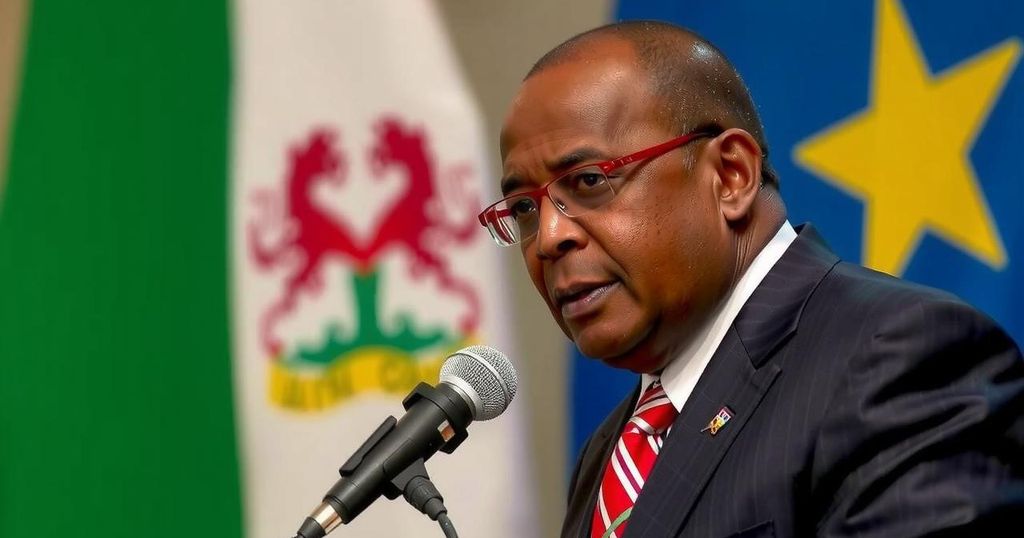Guinea Bissau’s President Umaro Sissoco Embalo postponed the November 24 legislative elections indefinitely, deepening the nation’s political uncertainty. The decision followed concerns over logistical difficulties and insufficient funding for the electoral process. The opposition holds a parliamentary majority, complicating relations with Embalo’s administration as the country struggles with ongoing instability and poverty.
On Monday, President Umaro Sissoco Embalo of Guinea Bissau officially postponed the legislative elections initially slated for November 24. This indefinite delay further entrenches the political uncertainty in the West African nation, which has been in turmoil since Embalo dissolved parliament in December 2023 following attempts of a coup. Despite calls for a democratic process, logistical challenges and inadequate funding were cited as reasons for the postponement, with no new election date established as of yet. This uncertainty extends to the presidential elections, amid ongoing tensions between Embalo’s administration and the opposition, which has an absolute majority in parliament since the June 2023 elections. The postponement highlights the difficulties faced by Guinea Bissau, one of the poorest countries globally. Political instability has plagued the nation since it gained independence from Portugal, leading to numerous coups and governance challenges. Although there was some progress towards reinstating constitutional order in the past decade, the country struggles with corruption and the ongoing conflict between the ruling party and the opposition raises concerns about future governance amidst financial constraints. President Embalo’s political adviser, Fernando Delfim da Silva, confirmed the cancellation of the election decree previously set for July 2024, although the timeline for the elections remains uncertain. The situation reflects broader issues of governance, stability, and financial viability within the nation, complicating the political landscape as the president and the PAIGC, which holds a majority in parliament, navigate their contentious relationship. The ongoing ambiguity regarding both legislative and presidential elections requires attention from regional bodies and the international community, aiming to support Guinea Bissau’s trajectory toward stability and governance. Political analysts will closely monitor how these developments unfold as the country seeks to amend its turbulent history and establish a functioning democratic order.
Guinea Bissau is a small West African country that has faced numerous governance challenges since its independence from Portugal in 1973. The nation has been marred by political instability, corruption, and a series of coups that have disrupted democratic processes. Following President Umaro Sissoco Embalo’s election in December 2019, tensions have risen between his government and the opposition party, particularly after the PAIGC gained a majority in parliament in June 2023. The country’s dire economic situation has exacerbated the struggles faced by its government, complicating efforts to conduct legitimate elections. The recent postponement of the legislative elections highlights the persistent instability within Guinea Bissau’s political framework.
The indefinite postponement of legislative elections in Guinea Bissau underscores the ongoing political instability and challenges faced by the nation. With logistical and financial constraints complicating the electoral process, the current administration finds itself in a precarious position, exacerbated by tensions with the opposition holding a parliamentary majority. As the country continues to navigate its turbulent political landscape, the need for concerted efforts toward establishing a stable and democratic governance framework remains critical.
Original Source: punchng.com






